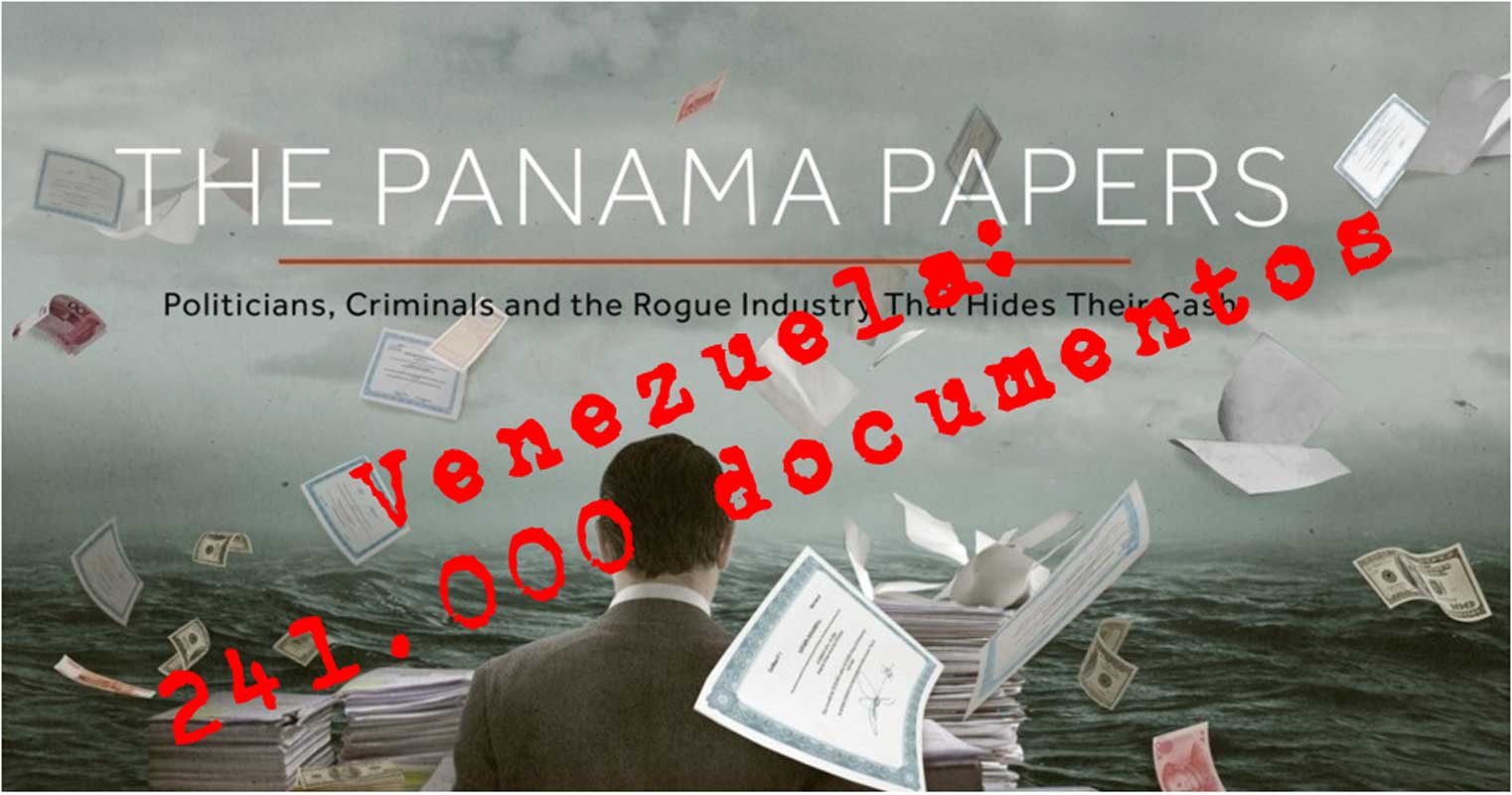Hegemony is allergic to the Panama Papers
The Venezuelan government's reaction to the Panama Paper leaks is textbook authoritarian: Deny, persecute, fire some journalists, and blame it on the gringos.



Unless you’ve been living under a rock for the past week, you have surely heard about the Panama Papers. The damning contents of this massive leak have dominated headlines worldwide.
Yet despite the large amount of Venezuelan-related stuff found in Mossack Fonseca’s documents, public reaction around these parts has been somewhat diluted. For that, we owe a debt of gratitude to our very own communicational hegemony, which got right to work as soon as the first news out of Panama came out.
Thanks to the hegemony’s efforts, a journalist directly involved in the investigation was fired from her newsroom.
Aihana Figueroa, now a former journalist at HegemonCorp’s newspaper Últimas Noticias, was laid off this week because of her participation in the investigation; specifically, an article written about banker Gonzalo Tirado and his involvement with the Panamanian law firm. Upon her dismissal from the paper, she took to Twitter and thanked the outpouring of public support.
According to Figueroa, Últimas Noticias Chairman (and former PSUV MP Hector Dávila) fired her for moonlighting, claiming that she failed to get proper authorization from her higher-ups before joining the investigation.
Never mind that, as far as HegemonCorp’s newspapers are concerned, the Panama Papers do not exist.
Other Venezuelan journalists involved in the Panama Papers investigation have been targets of attacks on social media and have been called “info-mercenaries” in a piece published by several State Media outlets.
News portal El Pitazo published a report in which they claim to have access to an internal memo from the Ministry of Communication and Information (MinCI). The document accuses the investigative journalists of being “open opponents of the government,” and states that the Panama Papers are used “to create a false image of the country.” The hegemony’s efforts to discredit the leak include questioning the reasons and the people behind them, and (you knew this was coming), accusing the U.S. of masterminding this destabilization plan.
Even though Nicolas Maduro and Diosdado Cabello have publicly called for inquiries into the Panama Papers, the government’s media apparatus has been trying very hard to minimize the impact of the leaks, right from the start. Except, of course, whenever anyone in the opposition is mentioned in the Panama Papers. That gets ample coverage.
It seems like the Venezuelan government reaction to the Panama Papers is pretty similar to those of two very freedom-of-speech-y countries: Russia and China. Russian president Vladimir Putin has dismissed the leaks as an attack against his nation, while the P.R. of C. is on a censorship overdrive. What do all these three governments have in common? They hate the idea of the media working as an accountability watchdog. Which is why they probably cannot find Iceland on a map.
If you’re interested in the Venezuelan part of the Panama Papers, you can go to this dedicated website.
Caracas Chronicles is 100% reader-supported.
We’ve been able to hang on for 22 years in one of the craziest media landscapes in the world. We’ve seen different media outlets in Venezuela (and abroad) closing shop, something we’re looking to avoid at all costs. Your collaboration goes a long way in helping us weather the storm.
Donate



